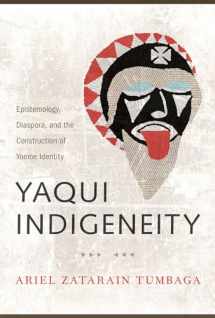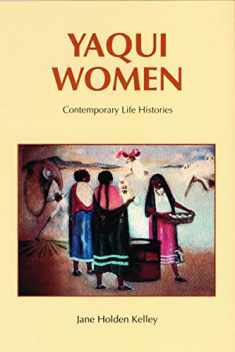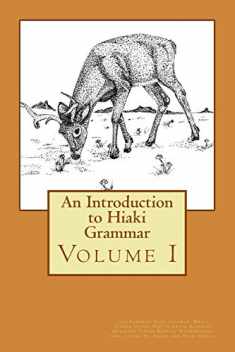
Yaqui Indigeneity: Epistemology, Diaspora, and the Construction of Yoeme Identity
ISBN-13:
9780816539376
ISBN-10:
0816539375
Edition:
Reprint
Author:
Ariel Zatarain Tumbaga
Publication date:
2018
Publisher:
University of Arizona Press
Format:
Paperback
224 pages
FREE US shipping
Book details
ISBN-13:
9780816539376
ISBN-10:
0816539375
Edition:
Reprint
Author:
Ariel Zatarain Tumbaga
Publication date:
2018
Publisher:
University of Arizona Press
Format:
Paperback
224 pages
Summary
Yaqui Indigeneity: Epistemology, Diaspora, and the Construction of Yoeme Identity (ISBN-13: 9780816539376 and ISBN-10: 0816539375), written by authors
Ariel Zatarain Tumbaga, was published by University of Arizona Press in 2018.
With an overall rating of 3.6 stars, it's a notable title among other
books. You can easily purchase or rent Yaqui Indigeneity: Epistemology, Diaspora, and the Construction of Yoeme Identity (Paperback) from BooksRun,
along with many other new and used
books
and textbooks.
And, if you're looking to sell your copy, our current buyback offer is $2.86.
Description
The Yaqui warrior is a persistent trope of the Mexican nation. But using fresh eyes to examine Yoeme indigeneity constructs, appropriations, and efforts at reclamation in twentieth- and twenty-first-century Mexican and Chicana/o literature provides important and vivid new opportunities for understanding. In Yaqui Indigeneity, Ariel Zatarain Tumbaga offers an interdisciplinary approach to examining representations of the transborder Yaqui nation as interpreted through the Mexican and Chicana/o imaginary. Tumbaga examines colonial documents and nineteenth-century political literature that produce a Yaqui warrior mystique and reexamines the Mexican Revolution through indigenous culture. He delves into literary depictions of Yaqui battalions by writers like Martín Luis Guzmán and Carlos Fuentes and concludes that they conceal Yaqui politics and stigmatize Yaqui warriorhood, as well as misrepresent frequently performed deer dances as isolated exotic events.Yaqui Indigeneity draws attention to a community of Chicana/o writers of Yaqui descent: Chicano-Yaqui authors such as Luis Valdez, Alma Luz Villanueva, Miguel Méndez, Alfredo Véa Jr., and Michael Nava, who possess a diaspora-based indigenous identity. Their writings rebut prior colonial and Mexican depictions of Yaquis—in particular, Véa’s La Maravilla exemplifies the new literary tradition that looks to indigenous oral tradition, religion, and history to address questions of cultural memory and immigration. Using indigenous forms of knowledge, Tumbaga shows the important and growing body of literary work on Yaqui culture and history that demonstrates the historical and contemporary importance of the Yaqui nation in Mexican and Chicana/o history, politics, and culture.


We would LOVE it if you could help us and other readers by reviewing the book
Book review

Congratulations! We have received your book review.
{user}
{createdAt}
by {truncated_author}




